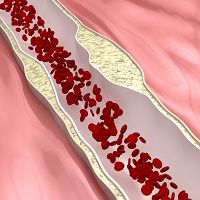Article
Evolocumab Use Could Slow Progression of Aortic Stenosis
Author(s):
A new analysis of the FOURIER trial is diving into whether evolocumab use could slow or prevent progression of aortic stenosis.

Released along with a study examining the evolocumab (Repatha)’s impact on MI type and size, an additional analysis of the FOURIER trial has returned results suggesting the PCSK9 inhibitor could slow the progression of aortic stenosis and reduce need for aortic valve replacement.
Results of the post hoc exploratory analysis indicated higher lipoprotein(a) (Lp[a]) was associated with a higher risk of subsequent aortic valve replacement, suggesting specific long-term lipid-lowering therapy could prevent or slow the progression of aortic stenosis.
With previous data linking LDL-C and Lp(a) to the pathobiology of aortic stenosis, investigators designed the current analysis to assess whether evolocumab’s lipid-lowering ability might reduce the severity of aortic stenosis and need for aortic valve replacements. Of note, the post hoc analysis was performed between September 2019 and February 2020, which is nearly 4 years after the completion of the multinational, phase 3 FOURIER trial.
The aim of the investigators' analysis was to determine whether evolocumab impacted new or worsening aortic stenosis or the rate of aortic stenosis events in the 27,564-patient cohort from FOURIER. For the purpose of the analysis, investigators defined aortic stenosis events as new or worsening aortic stenosis reported by trial sites or an aortic valve replacement.


Investigators used multivariable hazards model to evaluate the adjusted risk of aortic stenosis events. Analyses were adjusted for multiple factors including Lp(a) and LDL-C corrected for Lp(a) content, age, diabetes, hypertension, smoking state, and eGFR. Additionally, Cox proportional hazards model was used to evaluate evolocumab efficacy.
Upon analysis, investigators identified aortic stenosis events in 63 patients from the FOURIER trial. Of these, 26 were aortic valve replacements and the remaining were site-reported aortic stenosis events without valve replacement. Of the 26 instances of aortic valve replacements, 18 were surgical, 7 were trans catheter, and 1 was of unspecified type.
Results of the analysis indicated elevated Lp(a) concentrations were significantly associated with aortic valve replacement (quartile 4 vs quartile 1, 0.19% vs 0.02%; adjusted HR per SD increase in Lp(a), 2.22 [95% CI, 1.38-3.58]; P=.001). Results also suggested elevated Lp(a) concentrations were associated with increased rates of aortic stenosis events (aHR per SD increase in Lp(a), 1.55 [95% CI, 1.17-2.05]; P=.002).
Furthermore, corrected LDL-C concentration did not appear to be significantly associated with aortic stenosis events (aHR, 1.23 [95% CI, 0.93-1.61] per SD; P=.14). Investigators pointed out evolocumab use was associated with a lower overall risk of aortic stenosis events (HR, 0.66; 95% CI, 0.40-1.09)—with a decreased rate after the first year of treatment (HR, 0.48; 95% CI, 0.25-0.93), but with no association noted during the first year of treatment (HR, 1.09; 95% CI, 0.48-2.47).
Investigators pointed out multiple limitations within their analysis. Limitations included a relatively few number of events, not adjudicating the aortic stenosis events, detection bias, and only enrolling patients with preexisting atherosclerotic cardiovascular disease, among others. Investigators called for further examination of this potential benefit within the conclusion of their study.
“We have identified a possible beneficial outcome of PCSK9 inhibition on the risk of AS events, raising the possibility that specific pharmacologic lipid-lowering therapy could offer a means to prevent or slow the progression of AS,” authors wrote. “These exploratory findings merit further investigation with a dedicated randomized clinical trial.”
This study, “An Exploratory Analysis of Proprotein Convertase Subtilisin/Kexin Type 9 Inhibition and Aortic Stenosis in the FOURIER Trial,” was published JAMA Cardiology.




